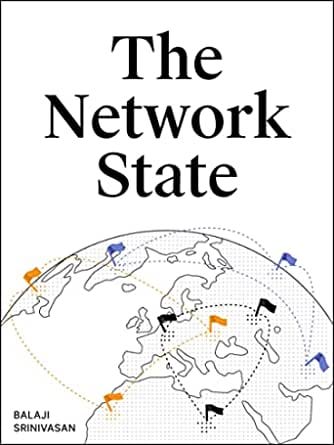Prisoners of geography: online community and crypto set us free
This is essay no. 5 out of 6 for 1729 Writers. Apply today at 1729.com.
Last weekend, I was out trekking in the Bavarian Alps, just an hour away from Munich. These beautiful mountain ranges spread across different nation states from Austria, Italy, and France. I got inspired to write this article about how geography has limited us in the past and how the internet created borderless knowledge and wealth transfers.
Introduction
From a book titled “Prisoners of Geography” by Tim Marshall, I learned stories of how geography could be either an opportunity or a drawback. For example, the mountains that I saw in the alps serve as a natural boundary to protect the people within the realm from outsiders.
Geography has constrained us in the past, limiting people from different places to interact and trade with each other. But once these natural barriers have been broken, it creates abundance. From the spread of wheat in Eurasia that fuels our belly to create civilization, to Marco Polo’s journey that brings paper money and coal for heating from China (then Mongolian empire) to Europe.
Thanks to globalization and the internet, we can break these natural barriers.
Both the online and physical worlds are now the real world. We can choose where we want to be and do what we want to do. - Mark Zuckerberg.
Online community
In the past, people used to live hyper locally. What they know is only what they have seen or heard from a few travelers. Hence, before the invention of Gutenberg’s printing press in the 15th century and the mass teaching on how to read in the 20th century (World literacy rate increased from 20% in 1900 to 80% in 200), knowledge spread locally.
Source: Our world in data
Expertise, creativity, and critical thoughts usually came and were passed around in a small local circle. For example, the famous cafe central in Vienna, where amazing minds used to hang out such as Sigmund Freud and Alfred Adler. Or the bustling bars in Montparnasse, Paris, where artists, writers, and philosophers such as Ernest Hemingway and Pablo Picasso meet.
Now the internet has added a new meaning to community. In the networked era, people with the same interest can convene and learn from each other. we are all just a click away from other people that we are aligned with.
As Balaji mentioned in the network state essay, people are organizing themselves not based on geographic distance but on geodesics, dynamic digital geography such as the social network.
I am lucky to have found an online community such as 1729, where people from different backgrounds shared ideas and learned from each other about technology that can create wealth (e.g crypto), health (e.g transhumanism), and truth (e.g decentralized media).
Since the launch of the 1729 writers community 4 weeks ago, we have written more than 50 articles on various topics such as pseudonymity, inflation, and digital education, just to name a few (check out the full lists at Paper.li).
Source: 1729
Crypto set us free
Where we live, used to determine our opportunity to generate wealth. If you happen to live in the old trading days of Venice, you might have a higher chance to become wealthy by trading or investing. In contrast to someone living on an isolated pacific island.
People have tried to break these barriers using cross border trading systems such as the Robin Hood app on your phone. However, our psychology does not change. We have a bias on things that are familiar to us, such as a stock of a company that we have purchased from or seen in the media.
“People invest based on what and who they know from their personal experience. It does not make any financial sense, but humans are irrational” the Psychology of Money, by Morgan Housel.
Crypto is different. When investing in cryptocurrencies/ projects/ tokens, we are not bound by where it is located or who is building it, but more by the technology behind it and the network within it. Ethereum for example was founded in Switzerland, by co-founders from around the world, based in the US, Romania, UK, Netherlands, and Canada. Another example is Polygon, which is founded by 4 engineers from Mumbai, India. No one cares where these people are located or which university they went to, we believe in the utility of their creation.
Now we are living in a time where opportunity exists for the whole world. With crypto, a guy with a cheap chinese phone in an Indonesian village now has the same chance to generate wealth as a banker in New York trading in multiple Macbooks.
Conclusion
Geography does not matter. Aligned communities from all corners of the world are building a new future based on networks, free from the prison of geography.
As people in the middle ages used to think that the earth is flat, we should also not fall into this trap in the age of the internet. New technology will surpass the geographic constraint.
We are free to roam the world wide web. Thanks Weless for inspiring me to go out and walk in nature.
Thanks for reading the article, walk every day, and enjoy the weather ☀️.






